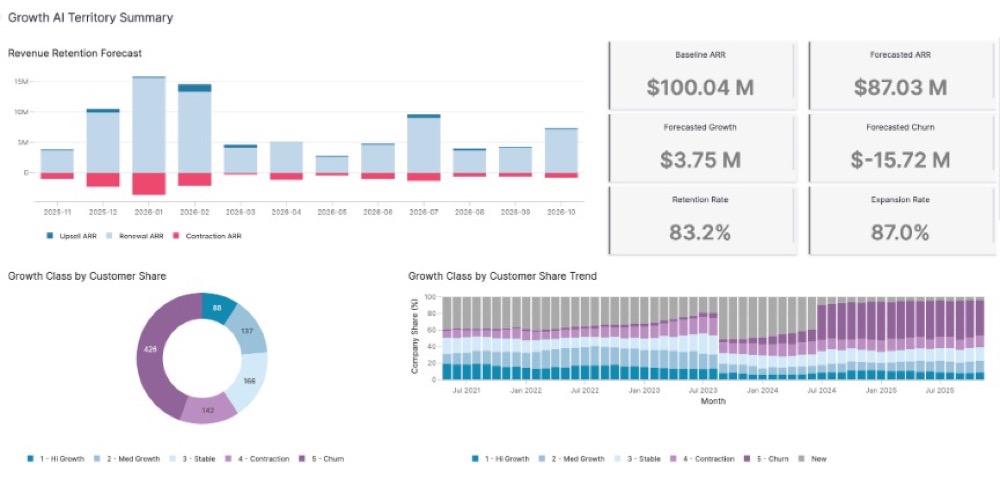You’re seeing houses sit on the market for longer. Now could be your chance to snag an underpriced rental property. But your agent doesn’t know if lowballing is the best move. Should you take advantage of this frozen housing market and go for a steep price cut, or get on the seller’s side with a slightly lower offer?
Ashley is feeling aggressive. And in this episode, she’s about to tell you why.
We’re back with another Rookie Reply where we take your questions and answer them live on the show. First, a new investor wants to partner on a short-term rental with her friend, but this multifamily deal will also serve as the friend’s primary residence. Can you legally do this? Will a bank allow both of them to be on the loan and take on the debt? Ashley has done something similar before and shares the exact setup.
An agent/investor combo has a client who wants to seriously lowball some sellers. The 2025 housing market is cooling, so is now the time to submit a rock-bottom offer? Finally, a new-build investor runs out of money and asks, “How do all these 20-year-olds buy 15 properties in a year?” Tony shares an underrated way to get capital for investments and repeat the process over and over.
Ashley:What if your very first offer gets rejected, not because of price, but because you insulted the seller.
Tony:Today we’re breaking down three questions every Ricky investor needs to hear from partnerships to low ball offers, to avoiding classic beginner mistakes.
Ashley:This is the Real Estate Rookie podcast. I’m Ashley Kehr.
Tony:And I’m Tony j Robinson. And with that, let’s get into today’s first question. Okay, so our first question today comes from Jackie in the BiggerPockets forms. Jackie says, I’m new to real estate investing. I currently have one long-term rental and I’ve been wanting to get into short-term rentals. I have a friend who is looking to move from her rental home to her first home to purchase and I wondered if we could buy a small multifamily home with her living in one unit and then short-term rent. The other units we have just started talking about this and she’s very interested in doing it so far. Also, we both have W twos, so we could split the workload and both potentially benefit from the tax advantages and income. We would have a lot to talk about and a lot to learn and research to do before embarking on this.But I’m looking forward to the process. My question is, if we buy this together, how should it be structured? I’m presuming the partnership should be in some form of LLC since she would be living in one unit. Could we get a mortgage for a primary residence with the structure? Could we both qualify as materially participating? As long as we both put in the hours? Alright, so a lot of questions here, right? So there’s questions on how should it be structured, what are the limitations if the friend is living in this as a primary residence and then material participation. So I guess let’s talk about the structure first. And actually maybe you can start right, because you and your sister did something similar where it was her primary residence, but you guys both bought the deal together. How did you structure that with hey, primary residence plus joint real estate venture?
Ashley:Yeah, and there actually is a very big difference between buying with a friend and buying with a family member. So especially if it’s going to be the primary residence. And the way this worked for me and my sister is, and I think it’s along the lines of how Jackie wants us to work with her friend, is that we bought the property together, it would be my sister’s primary residence and then rent out the other unit. My sister was going to live there, so she went and got an FHA mortgage on the property. It was only her going to be on the mortgage because she was the only person that was going to be living there. Me and her both went on the deed. My contribution was the down payment and my sister would be living there paying the additional amount in the mortgage. The benefit to her was she didn’t have a down payment.The benefit to me was I was getting into a house for three and a half percent down and I didn’t have to come up with 20% down to actually buy this house and I was getting 50% equity. The difference here is if your friend is using an FHA loan is that they have to show where the funds came from for the down payment and I was able to gift my sister the down payment money. So I had to write a letter saying that at no time my sister has to pay me back that $14,000, which is true, she doesn’t have to. And so I was able to gift her that money and then she was able to go ahead and get the loan with gifting funds. It has to be a close family member. I can’t remember specifically, but like a sibling, a parent, like maybe an aunt and uncle or grandparent.I can’t remember the rules exactly, but you couldn’t get the money gifted to you from a friend. So that’s where I think the complication would come into play as to when she went to get this loan for her primary residence, they would look at where all the funds coming from and so would your friend be okay with providing all of the capital for this deal? And then still putting your name on the deed of the property too and giving you equity in it. I think that’s one hurdle you would have to overcome is that it’s not like you both can bring 50 50 of the capital that you need to purchase the property because as their primary residence, they’re going to want to see where that money is coming from to purchase the property. If that’s it. I guess I just want to clarify that FHA loan, because I don’t know, is it conventional loan too that you would have to
Tony:Make a great point Ash about it. Be an FHA and I’ve never done FHA before, but I believe, and obviously guys go talk to a lender, go talk to multiple lenders. Actually, I think that’s the advice here. First is Jackie, you and your friend should go shop around and talk to multiple lenders, explain what it is you’re trying to accomplish. You guys want to buy a small multifamily, let her live in one unit. You guys both kind of contribute financially towards the purchase, but is her primary residence and let them guide you on what the best loan product is because maybe it’s not an FHA loan for the reasons that Ashley mentioned, but I believe, and again, connect with your lender. I believe if the money has been in your account long enough, if it’s seasoned long enough, then they’re not as concerned about where the money came from.Now I could be wrong, definitely go double check this, but I feel like when we were buying our primary residence, I feel like I remember hearing that at one point, but say you give her your a 50% today and you guys say, Hey, our budget is $50,000, so you give her 20 5K, it sits in her account and say it’s been a year. I think if the money’s been in there that long, I’m not sure if they’re going back to checks here. I think there’s a seasoning period like hey, if it’s been in there long enough that we’re not as concerned, but go talk to lenders. So I think that would be the first piece of advice is go shop it around,
Ashley:Wire me 20 5K and in a year I’ll buy us out.
Tony:We’ll be able to get an answer to that question.
Ashley:I’m already seeing red flags of this because you’ll need to have something very concrete in writing besides just giving your friend money and say, let’s wait a year or two. Yeah, that side of things too.
Tony:Totally agree with that as well. Right, and I think that gets into the structure, how you guys put this together. What is the agreement state? So usually if you’re going to buy a primary residence, it’s not going to be able to be purchased an LLC or an LLC is a business entity for business use and your primary residence is exactly that. It’s personal use. So again, lender can check me here if I’m wrong, but I doubt you would be able to buy a primary residence under any circumstances and have it deeded to an LLC.
Ashley:Just on that, no. Real quick is what you could do is just buy it in the LLC and still live in the unit. You would just have to get LLC financing, which is usually on the commercial side of financing and you’re not getting the lower interest rate. Usually not the 30 year fixed unless you are doing A-D-S-E-R loan. But A-D-S-E-R loan usually requires it to be investment property only and you actually cannot live in the property where there is some kind of commercial lending or conventional loans where you could buy it in your LLC and live in the property technically if you wanted to, but you’re not going to get as good financing at all.
Tony:So we’re seeing a lot of then that’s for this, right? But I think it’s because there is a lot of nuance to this question, but I think again, going back to the structure of the partnership, I would still make sure that even if it’s not necessarily owned in an LLC that you guys still have some sort of contractual agreement between the two of you about what this partnership looks like and 50 50, obviously that’s the easiest thing to do, but think about all of the other responsibilities to go into this. She’s going to be living there. Is she also going to be the property manager? If so, does 50 50 still make sense, right? Is one person bringing all of the capital, right? Are you bringing all the capital and she’s just getting the debt in her name? Maybe there’s a different structure that makes sense. So just look at what everyone’s bringing to the table and think about everything from the acquisition to the closing process to the management. Think about all those different pieces and divvy up who’s doing what, and then make sure that your partnership aligns with those responsibilities.
Ashley:And I think too, one thing that me and my sister didn’t talk about is what happens when my sister moves out of the property? So when you rent the property out, is it then the cashflow is split 50 50? Is your friend that lived in the unit, is she getting all of that cashflow because she took care of the property and lived there and it’s her primary? So I think thinking down the road too as to what happens when she moves out of the property, what if your friend has trashed the place and it needs this big costly turnover before you can even rent it out? Is that the responsibility of both of you to bring capital to make those repairs and things like that? So I think thinking down the road too as to how to structure it, but you can go to biggerpockets.com/lender finder to get yourself connected with a lender, especially an investor friendly lender, even though those would be a primary residence, since it would be an investment for you, you can find a lender that would be able to tell you different loan options that are available in that market for you.Okay, we’re going to take a quick break, but coming up, what happens when you submit a low ball offer, which I’ve done plenty of times, let’s just say not everyone takes it well. We’ll break it down right after this quick word from our show sponsor. Okay, welcome back. Our next question comes from Henry in the BP forums. I wonder if this question is from Henry Washington, one of our favorite BiggerPockets host here. So I am a real estate investor and a licensed realtor. I don’t know if Henry is a licensed realtor, so it might be a different Henry. I have clients who are interested in making lowball offers on various listings. They aim to have the seller cover the buyer’s agent commission as part of their strategy, their approach resemble, their approach resembles the bur method. For example, we have a three bedroom, two bathroom home and fair condition requiring less than 20 K in cosmetic repairs that has been on the market for over one year.The price reduction has been minimal and the current listing price is 300 K. My clients want to submit an offer of 230 K. This is the Texas market. As a sellers or buyer’s agent, how would you respond to this situation? Okay, so this is coming from the real estate agent who has clients that want to actually submit this low ball offer. So to recap, it needs 20 K in repairs. The price is currently at 300 K. There have been a couple of reduction to get to that 300 k and they want to spend an offer of 230 K and it’s been on the market for over one year. I 100% low ball, low ball, low ball offer. If I had a property sitting on the market for a year and I’m getting close to that point, it’s under contract, not quite a year yet, we haven’t closed yet.I would take a significant reduction to get rid of it. And of course it really depends on the seller’s motivation. The first thing that I do when I am looking at a property that’s been sitting is I use prop stream and I’ll go into stream and I will look at on most properties that have financing, they’ll tell you when a loan was taken out of on the property and then they’ll also tell you an estimated balance due. So I think this estimated balance is determined by if they made every single payment on time after 10 years, this is what it would be based on the mortgage they originally took out. And then it’ll show if there’s any other HELOCs or anything like that on the property. And I love to look at this to see if maybe there is the opportunity to get a price reduction because say on this three K property, I see they only owe $50,000 on the property, but if I go in and I see it’s estimated they owe 290,000, like okay, there’s probably way less chance of them taking a low ball offer.But also I try to look at too if there’s an opportunity for seller financing if they don’t owe on the property or they owe very, very little where I could cover that with the down payment to pay off the property. So an additional option is doing the seller financing where maybe you can get closer to the price they actually want by offering seller financing. The last thing here is I’ll point out is that I don’t think that you should be afraid of submitting low ball offers. I think that is one of the biggest complaints from investors is that they don’t want an agent who won’t submit the low ball offers that they want an agent who is going to be okay with doing that because it’s uncomfortable in the first place. But I think that you should go ahead and submit the low ball offer.First of all, I think this is a perfect example of when you should submit a low ball offer when it’s been sitting on the market for over a year to see what you can get. But yeah, I think as an agent, if you want to work with investors, you have to get comfortable with submitting these low ball offers and what’s the worst that will happen? They will say no. And my agent always does this, does a verbal offer first so you’re not wasting time drawing up a contract. Things like that, especially what are the chances that it’s been sitting on the market for a year and all of a sudden two investors submit their offers at the same time and now it’s a rush to see who gets in and gets the better offer. Most likely not happen. You can take your time, you can do a verbal offer and if they say yes, actually we would do that, then you can go ahead and submit the full offer, the full contract.
Tony:And Asha, I think context matters here as well. If we were having this discussion when interest rates were 2.5%, then yeah, low ball offers aren’t going to get you anywhere in most markets, right? Because there’s just too much buyer interest. They have their pick of the litter for what offer they want to accept today. Very few buyers. And I think the competition isn’t nearly close to what it was two or three years ago when rates were a lot lower. So I think we have shifted toward a buyer’s market where buyers have more leverage in negotiations today than the sellers do because the sellers just simply don’t have as many people submitting offers. And what that means is that you don’t have to come 10 K over asking with no contingencies and giving up your firstborn child to get a deal accepted. Now you can say like, Hey, there actually are some issues with this house and I don’t think your price is a reasonable or fair expectation or representation of the value of this property and here’s my offer that’s significantly below you’re asking for. So I think the context of where we are at in the real estate cycle is an important thing to consider as well,
Ashley:You know what? That actually gave me a really great prank to do on my kids this next house that I’m trying to buy. If I get it under contract, they’re going to be excited about it. I’m going to tell them I’m going to read them rumple still skin and I’m going to say, but I had to give one of you up and this is what’s going to happen. You’re going to go live with Rumpel still skin
Tony:And that’s like the PTS that makes your kids hate real estate investing. Like my mom, mom stole me away for a good deal
Ashley:If you guys haven’t seen it. Or a real recently came out of me at BP Con, I guess by the time to say is not so recent, but Turbo Tenant interviewed me at BP Con and they were asking me different questions and then one was, who was your favorite child? And they wanted me to tee it up as turbo tenant and then it pans to my kids that were there just shaking their head at me. That Turbo tenant was my favorite and not them. So they’re used to it by now.
Tony:I think the last thing I’d add to you is just there are ways to maybe make your offer more competitive aside from just pricing. I think first, feel free to justify your offer. If they’re asking significantly more than where that deal makes sense, then walk them through your math. Say you’re asking for 500 K, but this kitchen and bathroom hasn’t been renovated since the eighties. There’s mold, the roof needs to be repaired and the house next door that was fully renovated sold for four 80. So there’s a disconnect here, Mr. And Mrs. Seller, here’s the scope of work that I need to do to be able to bring this house up to 2025 standards. Here’s what it’s going to cost me to do that. And yeah, I’m an investor, so I’d like to make some level of profit. So here’s the justification behind my figures.And then there are ways you can kind of sweeten the offer. Maybe you close faster, tell them they don’t have to worry, but you’re not going to ask for any repairs during the closing process. There’s no contingencies around financing, whatever it may be. But those are the ways that you can justify your low ball offer to make you feel even more confident as you go to submit it. Alright, Hey guys, we’re going to take a quick break before our last question, but while we’re gone, be sure to subscribe to the Real Estate Rookie YouTube channel and you guys can find us at realestate Rookie and we’ll be back with more right after this. Alright, let’s jump back into our final question. This one comes from Grant. Grant says, I’ve heard people saying that they’ve got their first seven properties in like 11 months, some even crazier.I currently have five properties, but I’ve used all of my money to purchase these properties at 25% down and now I’m renting them out. I would like to have 30 rentals. I have the deals, I just don’t have the capital to move on all of them at once. I know there’s private money lending that can fund some of these new construction deals, but I don’t want to sell them for a profit either. I want to keep them as rentals. Are there lenders that would let me pay them like a traditional mortgage over that long period of time? What do you guys think I can do to get to three properties per month? So first Grant, congratulations to you said you’ve got properties, you’re better than 99% of the people living in the United States right now. But I think let’s break down some of what you’re talking about. First, you’ve got this goal of 30 rentals and I think my first question to you is why? What is it about 30 that makes you believe that’s the right number for you? Is it because 30 gets you to a certain amount of cashflow? Is it because 30 gets you to a certain amount of equity? Is it just 30? Sounded like a nice neat round number? Are you like Ashley, where you want to get 30 before 30? What? I
Ashley:Was waiting for you to say that.
Tony:So what is it, right? What’s driving that? Because, and Ash and I, we’ve talked about this a lot as we’ve grown both of our portfolios, but scaling for the sake of scaling isn’t always the right option. And sometimes 10 rental properties, they’re just like punch above their weight class could be better than 30 mediocre properties. So I think the first question is why is it that 30 is the right number for you and do you actually need to get to 30 or is there some other number lower than 30 where if you could just produce more cashflow, you could still achieve the same goal? The second thing that I’d say is I think you’ve hit the nail on the head when it comes to private money, but you don’t necessarily need the private money for long-term debt. It sounds like you are looking to do maybe new construction or some combination of new construction in burrs.And that is actually a great scenario for using private money. So the way that it would work is, say you’ve got a deal you’re trying to go take down and between your land acquisition and your construction, it’s going to cost you 300 K, but those will appraise for 400 when they’re done. You could go out, raise a 300 k fund, all of your land acquisition and your construction, say it takes you 12 months to do that. At the end of the 12 months, you now have a property that’s worth 400 K that costs you 300 to build. You go out, you refinance that, you get, call it, I don’t know, 80% of the appraised value, 80% of $400,000 is $320,000, right? So you have three 20, you only owe 300, you can pay them off with their interest and now you own this property free and clear or not free and clear, but without any cash out of pocket.So that is a very repeatable process to build your portfolio using other people’s capital and then still paying them back every six to 12 to 18 months. So they’re getting their principle and their interest back. So if you have the ability to raise private capital and you’ve got the skillset to do new construction or burrs, that is probably the approach that I would take. It sounds like you’ve got the deals, you’ve got the capital, you just got to marry those two things together and structure it in a way that allows you to pay them back quickly.
Ashley:Yeah, I think the thing that would stand out to me the most when you first read this question was I was thinking about paying off the properties or paying down the properties. I’d be interested to see how the numbers would compare as to taking that cashflow and taking your savings or whatever you build up over time to invest into another deal is if you were to pay off one of those properties, how would that change your cashflow compared to investing into a new deal like three years ago when you were getting low interest rates? I definitely wouldn’t have recommended this. So I guess it depends too as to what the interest rate is on your properties that if you’re two 3%, then it doesn’t make sense to pay off the property. But that’d be my only recommendation is to looking in that in addition to what Tony mentioned too. Well, thank you guys so much for joining us today. For this rookie reply. I’m Ashley. He’s Tony, and we’ll see you guys on the next episode.
Help us reach new listeners on iTunes by leaving us a rating and review! It takes just 30 seconds and instructions can be found here. Thanks! We really appreciate it!
Interested in learning more about today’s sponsors or becoming a BiggerPockets partner yourself? Email [email protected].

























